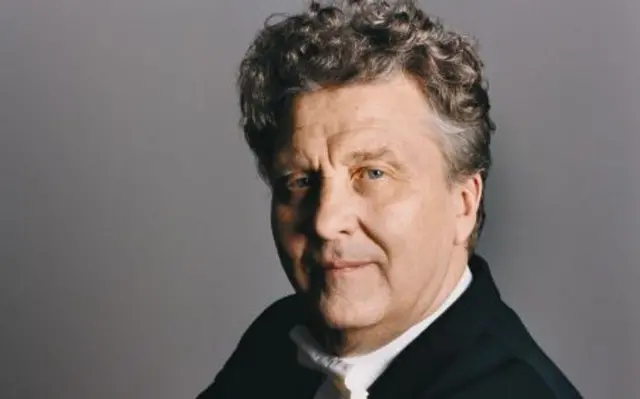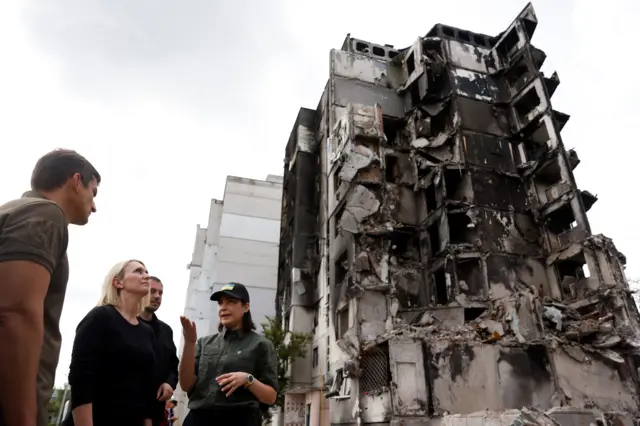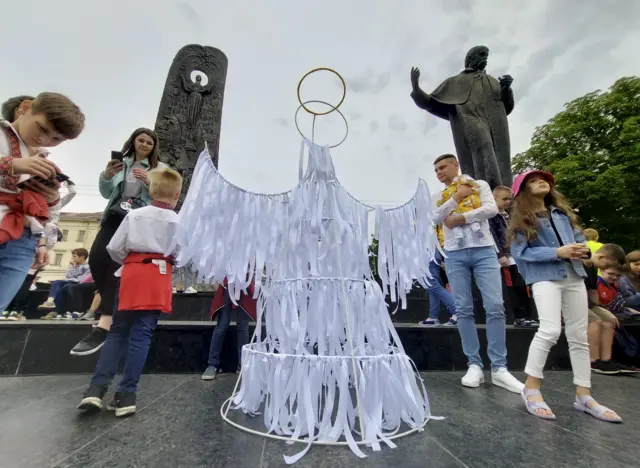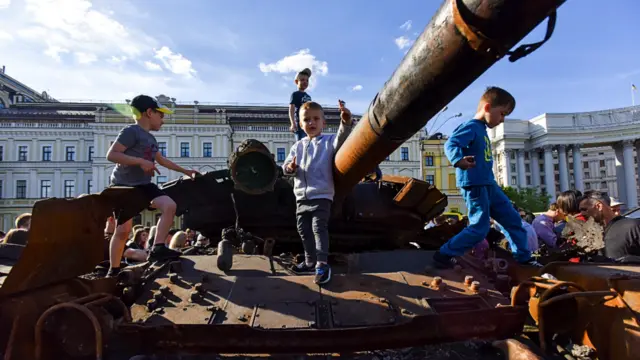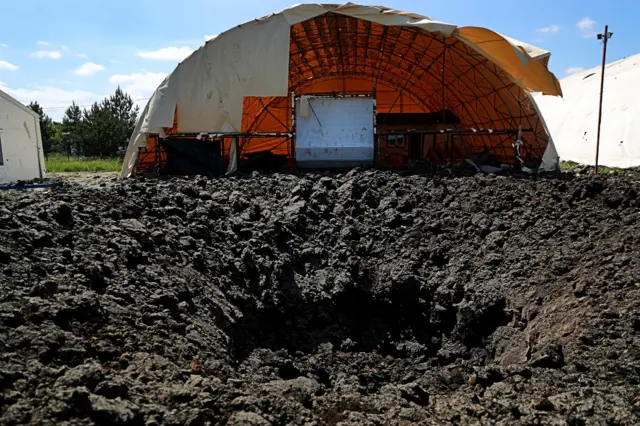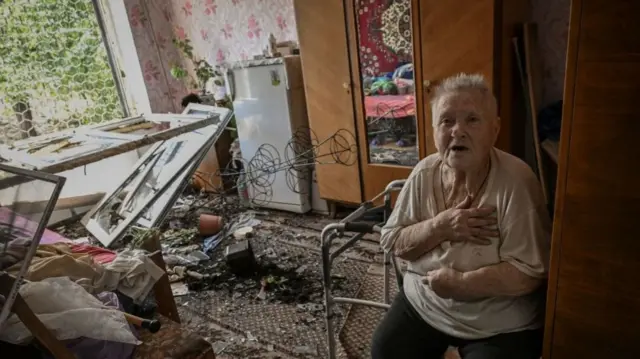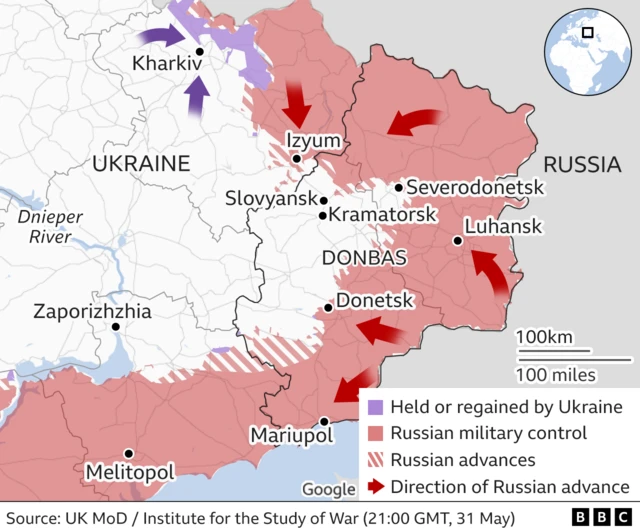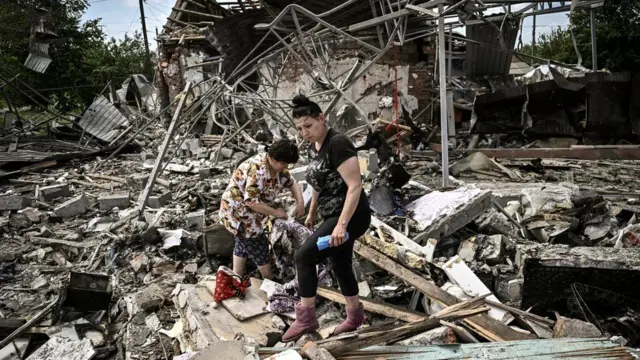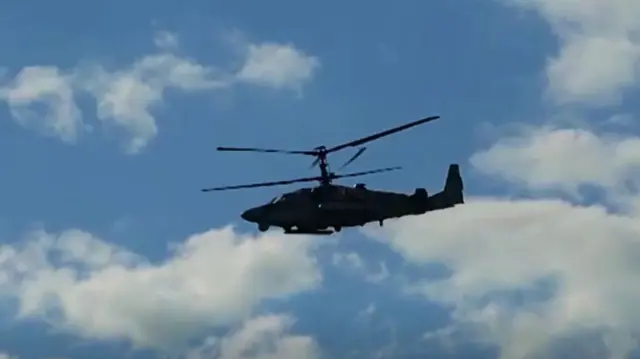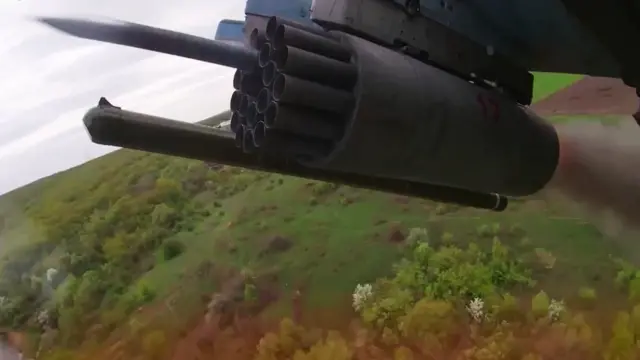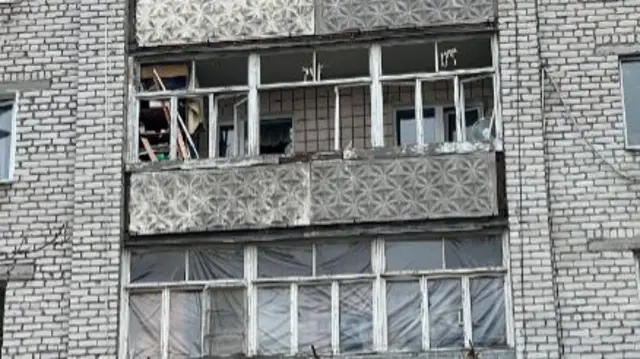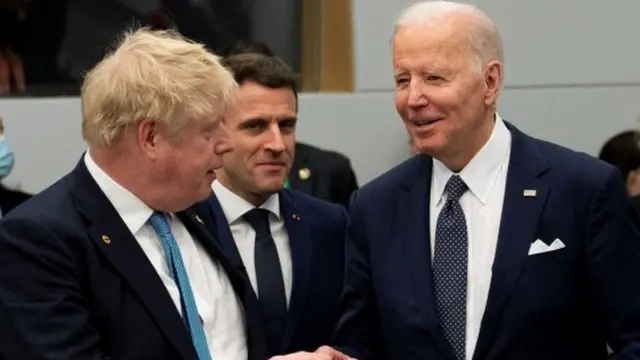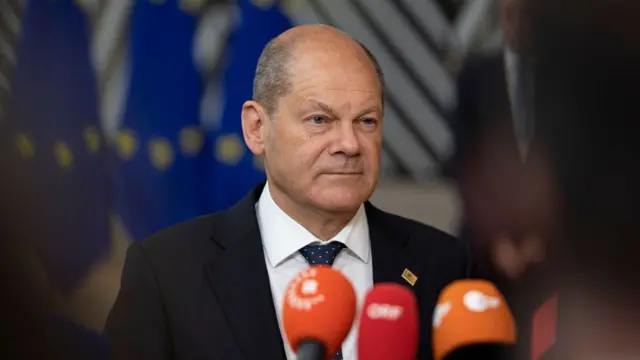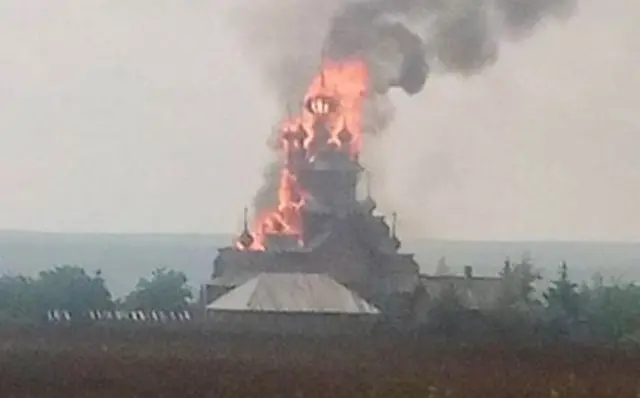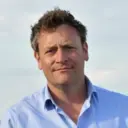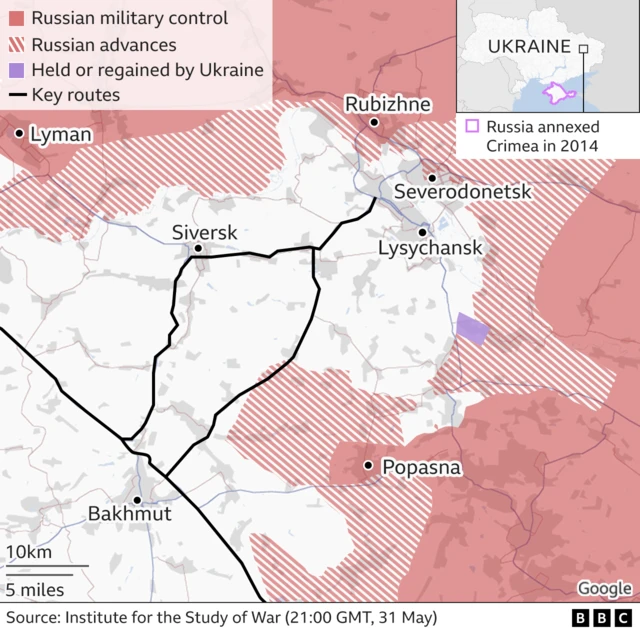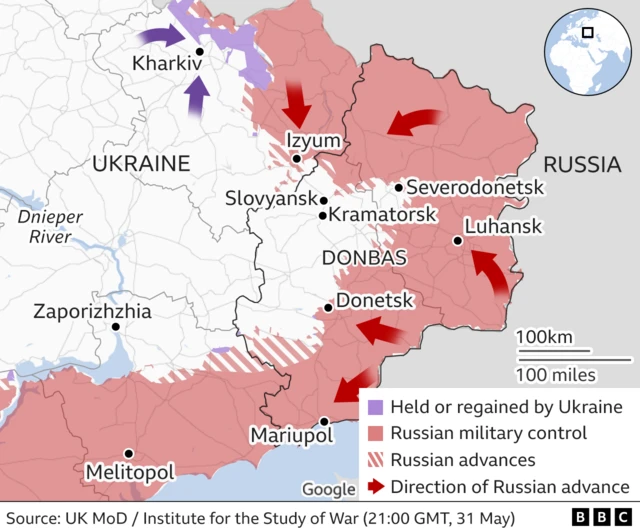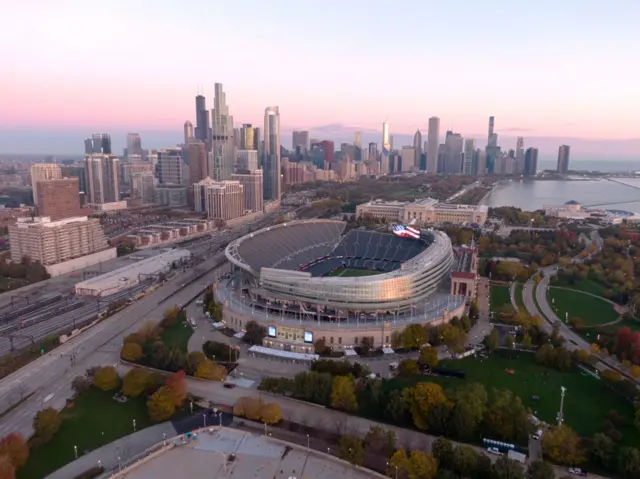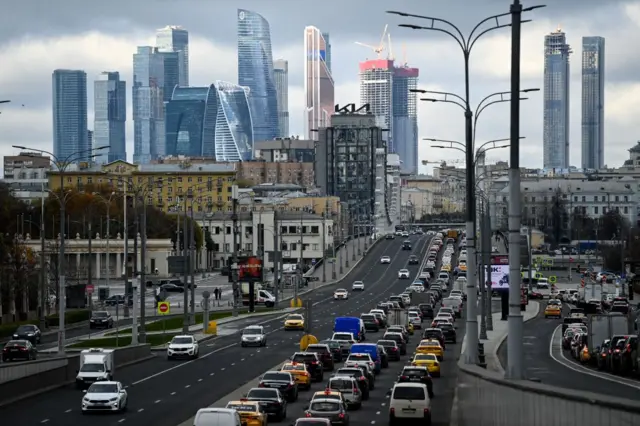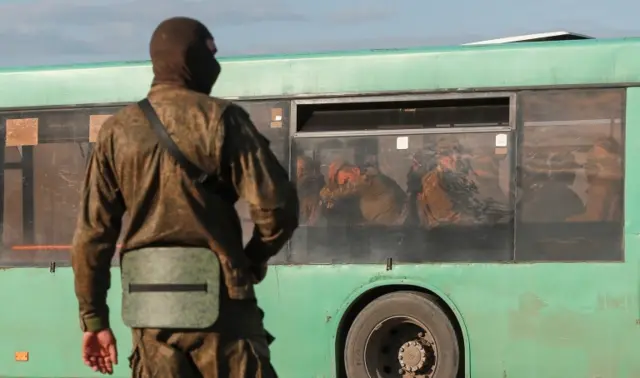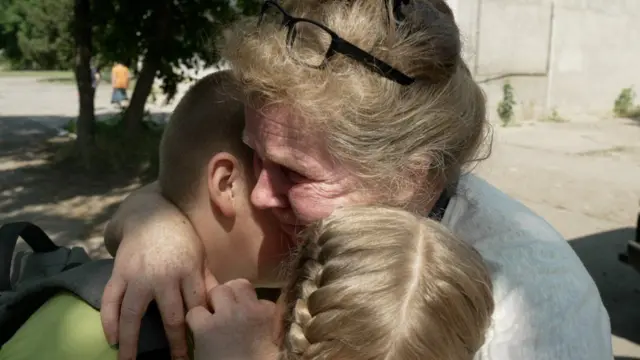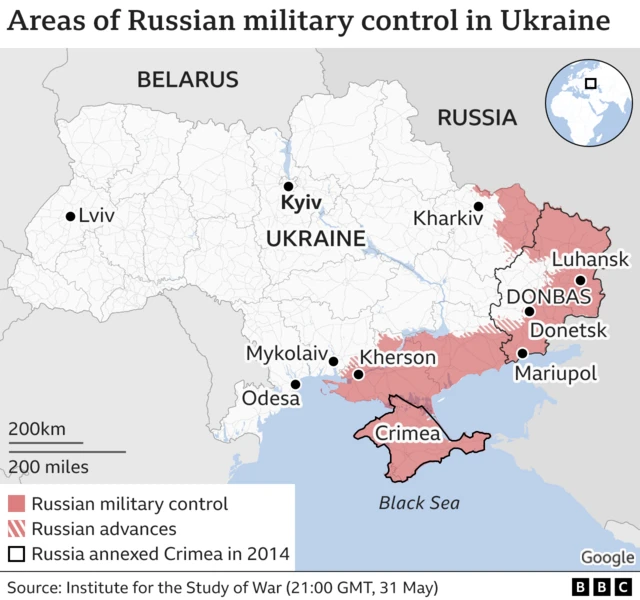We're pausing our live coveragepublished at 19:19 British Summer Time 4 June 2022published at 18:19 4 June 2022
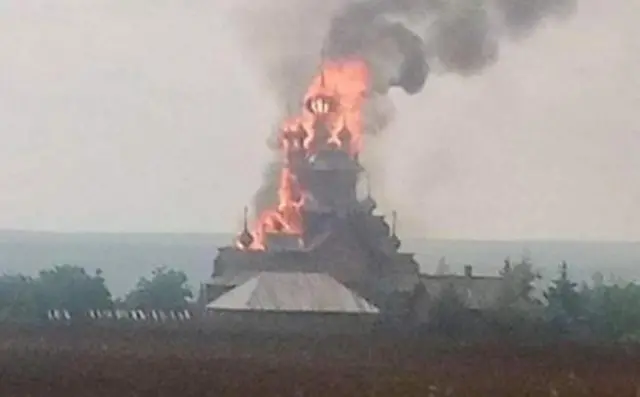 Image source, Kochevenko/Facebook
Image source, Kochevenko/FacebookFighting in Ukraine's Donetsk region sparked a major fire at a wooden monastery near the front line
We're pausing our live coverage for today. We'll bring you the latest updates and analysis again on Sunday. For now, here are today's main developments:
- The key eastern city of Severodonetsk continues to see intense fighting, with Ukraine saying its forces have recaptured part of the city. Russia, however, claims several Ukrainian units are retreating. "The Russian army is throwing all its power in this direction," the regional governor said
- A church at a famous monastery in eastern Ukraine, Sviatohirsk Lavra, has been set on fire. Ukraine blames Russian bombardment but Russia has accused retreating Ukrainian forces of starting the blaze
- French President Emmanuel Macron has again warned against humiliating Russia, after urging the West in May not to give in to "the temptation of humiliation, nor the spirit of revenge". Macron says France's role is as a "mediating power" between Ukraine and Russia.
- Russian troops continue to shell residential areas of Mykolaiv, with three people killed in attacks this morning, the southern city's mayor says. The BBC has not been able to independently verify this
